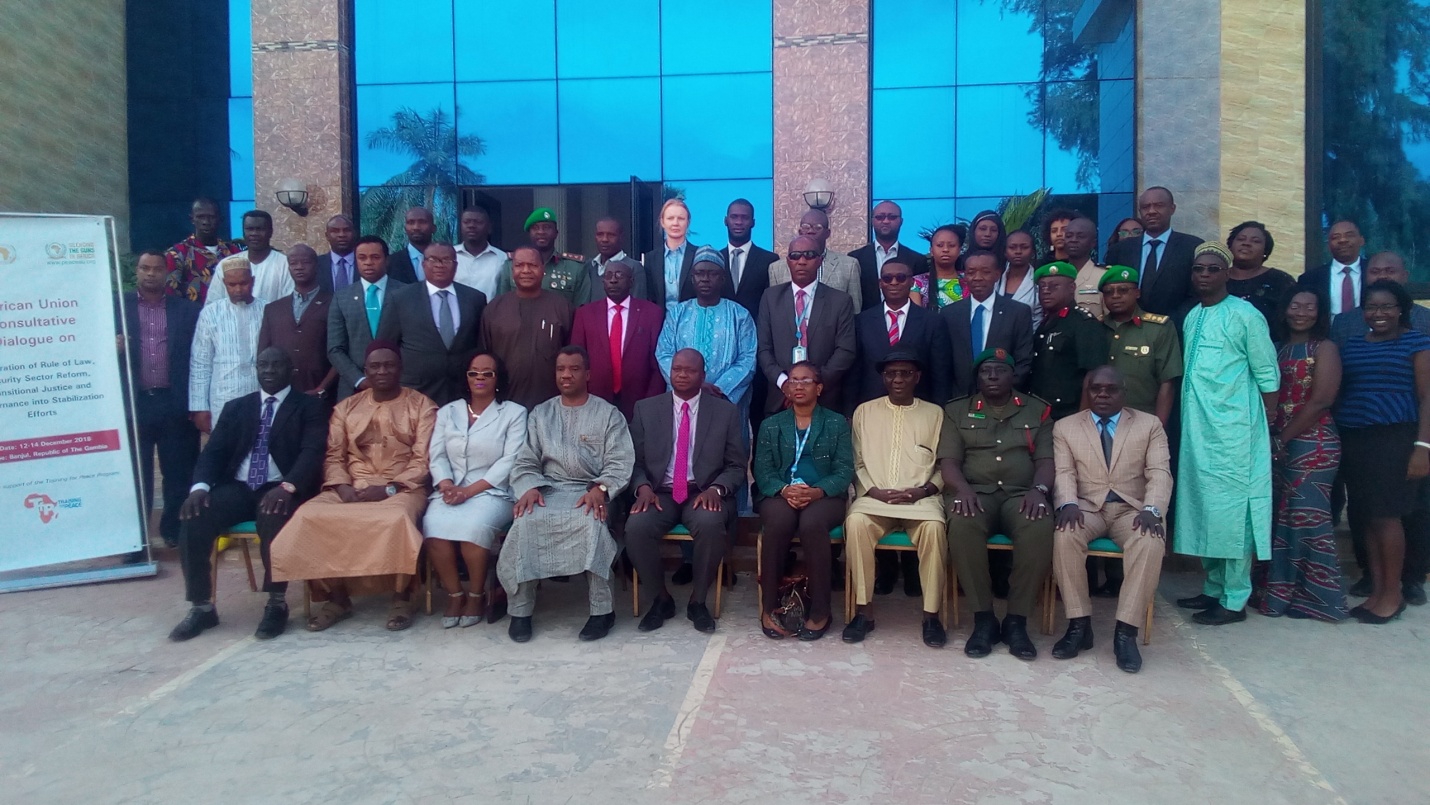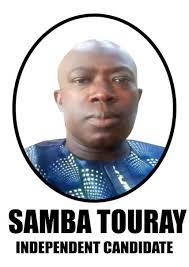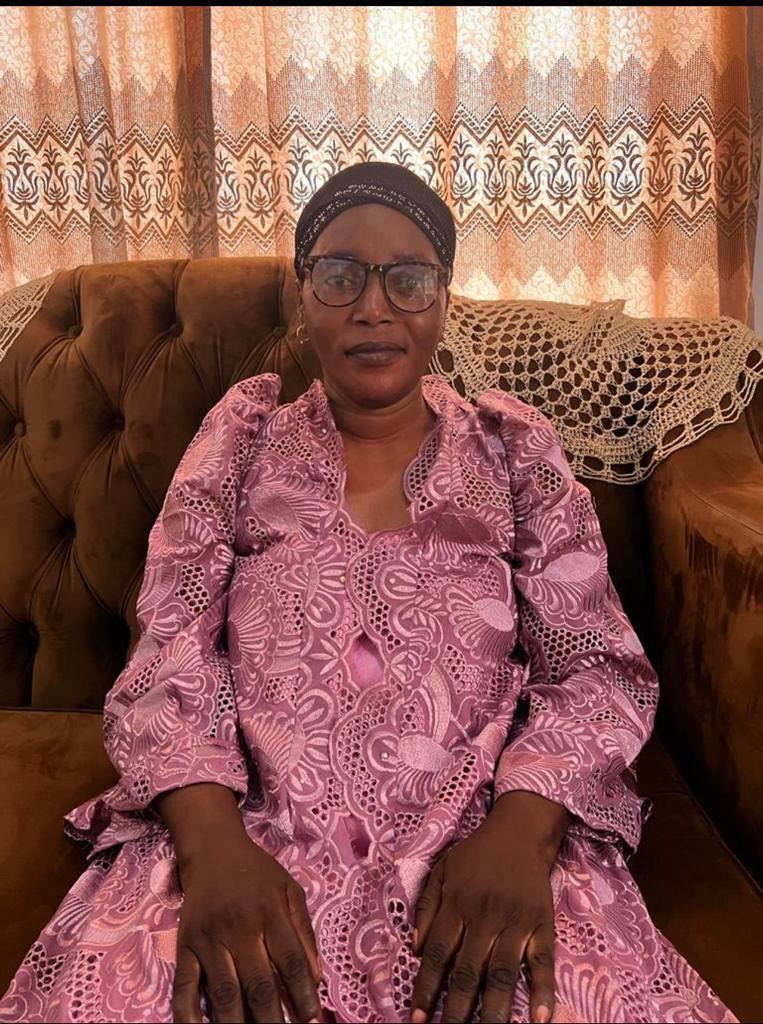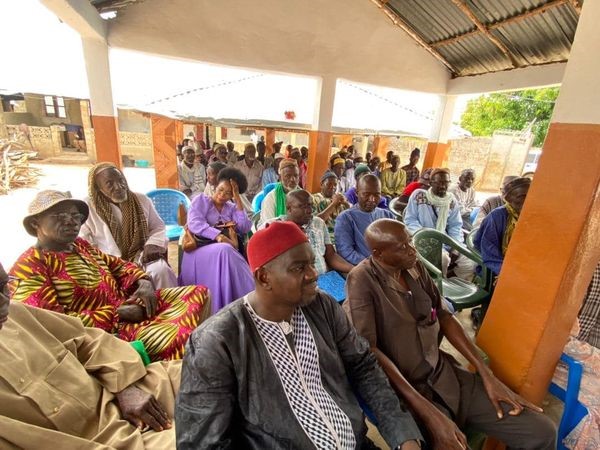Three day a high level African Union consultative dialogue opened in Banjul on Wednesday 12th December 2018 at a local hotel in Kotu.
The high level regional dialogue meeting brought participants from the ECOWAS member states was organize the African Union with support of the training for peace program.
The theme; “on enhancing the integration of rule of law, security sector reform, transitional justice and governance into stabilization efforts. Lessons for silencing the Guns by 2020.
In his speech Dr. Alhaji Sarjor Bah Head, crisis management and post conflict reconstruction development division CMPCRD, African union commission said the realization of the promise of Never again.
He added that: “We often hear at the end of violent conflict and difficult transitions can only be attained through dedication, hard work and a commitment by all stakeholders to ensure that the right institutions are established and empowered”
He said it equally critical to have the appropriate legal frameworks, human resource capacity and financial resources to be able to lay the right foundations or where they already exist, consolidate the foundations on which societies are anchored.
He said the period after violent conflicts or difficult transitions offer opportunities for transformation – opportunities to address mass scale human rights violations by exacting accountability from alleged perpetrators, providing remedial action for survivors and victims’, and putting in place measures for the prevention of resources.
According to him the AU, recognizing the complexities of reconstructing and transforming societies, has provided a blueprint for post conflict reconstruction and development.
He also cited that this policy, which was adopted here in Banjul in 2006, sets out six pillars that should guide stabilization efforts of member states.
He explained that the AU has also developed a number of frameworks including the African peace and security Architecture roadmap 2016-2020, the African Governance ARCHITECTURE and the roadmap for practical steps to silence the guns by 2020, all of which places post conflict stabilization efforts at the heart of efforts by the union, the regional Economic communities and regional mechanism states and civil society in creating a conflict –free Africa.
. Ebrima Mballow, the minister of interior said the government of the Gambia under the capable leadership of president Adama Barrow commend the AU vision for Silencing the Guns by 2020 , which is one of the flagship of Agenda 2063, the vision of creating an integrated , peaceful and prosperous Africa.
According to the minister, the AU technical support to the Gambia is in line with the ongoing efforts of the Gambian government to re-establish strong and viable institutions in these areas , and so is the support being provided by ECOWAS, the EU , the UN , the world Bank, IMF and other bilateral actors.
He said therefore, this consultative dialogue comes at a critical time when the government is striving to respond to public demand and expectations for democratic, inclusive and accountable security sectors, rule of law, human rights and governance institutions.
Nassie Golakai Gould resident representative and interim UNDP expressed appreciation on behalf of the united Nations system in the Gambia on this important occasion of the multi-stakeholders seminar on rule of law, security , transitional justice and governance in the region.
She commended the AU for organization of this important dialogue that aims to ensure a holistic and systematic approach to the consolidation of governance, conflict mitigation and sustainable peace building.
She said this approach recognizes the strategic inter-relationship between rule of law, security and transitional justice as key component of an over-arching rule of law and justice system which itself is underpinned by a national governance frameworks.
Vabah Gayflor ECOWAS special representative to the Gambia ECOWAS explained that since its formation in 1975 has continued to build bridge across the sub region and has constantly endeavored to develop innovative means through constructive engagement amongst and within member states and other relevant actors towards achieving a just and equitable society.
“As a sub regional body ECOWAS has the responsibility to intervene in alleviating the suffering of its citizens and restore life to normalcy in the event of crisis, conflict and disaster,” she noted.




